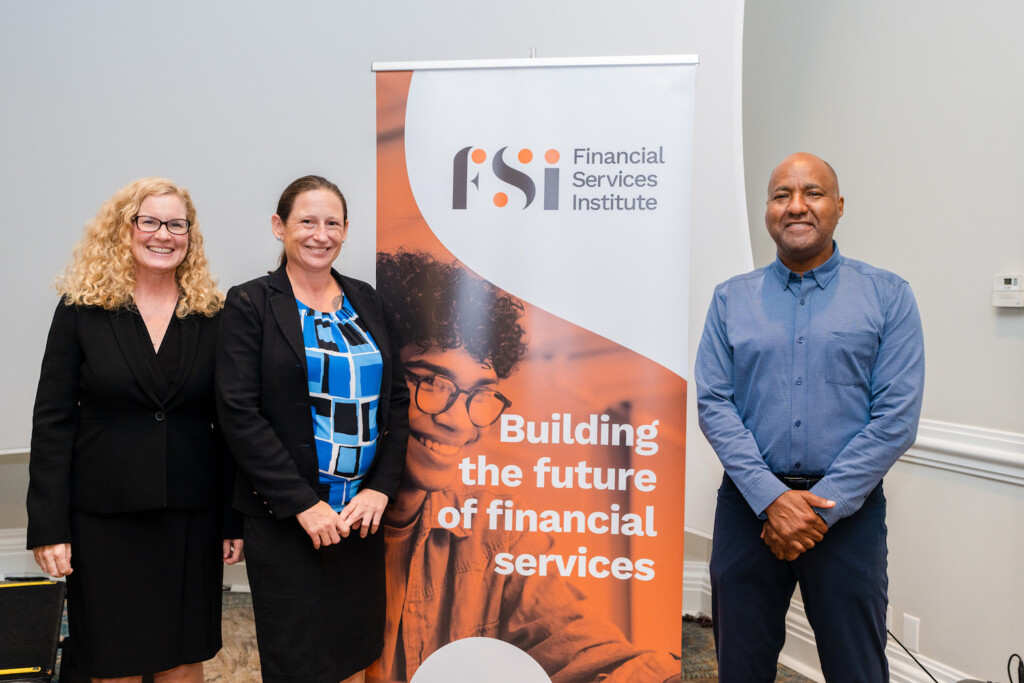Share
NEWS ARTICLE
High Turnout for FSI AML Regulations Seminar

The first seminar held by the Financial Services Institute (FSI) – focused on the 2023 AML Regulations, was well attended by the industry with over 80 people at the event. With major implications across various sectors, there was great interest in understanding the impact of recent changes to the AML Regulations as well as those which are being proposed.
The seminar by FSI, held on Thursday March 9th at the Grand Cayman Marriott Resort, included a presentation by guest lecturers Justine Plenkiewicz, and Elisabeth Lees, Co-founders of law firm Claritas, as well as FTS Director Paul Byles.
The presentations covered how AML Regulations have evolved in the Cayman Islands, with an overview of the key changes and an in-depth examination of two key amendments, highlighting Proliferation Financing Risks and Risk Management for Virtual Assets.
With the AML Regulations broad in scope and breaches attracting large fines and potential criminal charges, participants in the financial services industry need to keep ahead of developments in this area and fully understand their obligations.
Cayman AML regulations have evolved significantly since the regime was enacted over 12-years ago. Justine Plenkiewicz and Elisabeth Lees reviewed these changes in the context of the Cayman Islands’ current designation as a Jurisdiction under Increased Monitoring by the Financial Action Task Force. The consequences of this listing are not just reputational, they explained, but also impacts the jurisdiction financially as it becomes harder for firms to do business, in addition to the political implications and a potential decline in correspondent relationships.
Much of the immediate focus centred on the amendments since 2020 to the AML Regulations which were consolidated this year. This section included the removal of listed Schedule 3 Equivalent Jurisdictions, requiring each financial services provider to now carry out its own country risk assessment and the requirement to have systems and procedures to prevent breaches of targeted financial sanctions related to proliferation. The implications for proliferation financing risk were addressed separately in a presentation by Elisabeth Lees.
With the addition of Virtual Asset Service Providers (VASP) to the AML Regulations, the presentation by Paul Byles on Improving Systems to Address Risk Management for VASP, was of great interest. In addition to explaining the extent of money laundering in the VASP sector, he outlined the policies and procedures to counter that risk, including internal controls and customer due diligence.
The session also highlighted the red flags associated with VASPs and money laundering. As well as all the traditional money laundering red flags, certain activities indicate heightened AML risk for digital assets. These include converting virtual assets into fiat at a significant loss, engaging with VASPs in countries with weak AML/CFT regulations, and multiple high-volume transactions made in a short period of time.
Recent money laundering schemes have leveraged unregulated crypto exchanges, Byles said. There are also associations with gambling and gaming websites, as well as using mixing services or tumblers, crypto ATMs with weak risk management, and pre-paid crypto debit cards. “Significant activity of VASPs leveraging these products and services should prompt a second look and further examination from an AML perspective,” Byles said.
The FSI is a leading provider of training and education courses for professionals interested in the financial services industry. FSI seminars are delivered by local and international experts on a range of topics relevant to the financial services industry, with a focus on the Cayman Islands.
For further information, please contact us at info@caymanfsi.ky

Share
NEWS ARTICLE
High Turnout for FSI AML Regulations Seminar

The first seminar held by the Financial Services Institute (FSI) – focused on the 2023 AML Regulations, was well attended by the industry with over 80 people at the event. With major implications across various sectors, there was great interest in understanding the impact of recent changes to the AML Regulations as well as those which are being proposed.
The seminar by FSI, held on Thursday March 9th at the Grand Cayman Marriott Resort, included a presentation by guest lecturers Justine Plenkiewicz, and Elisabeth Lees, Co-founders of law firm Claritas, as well as FTS Director Paul Byles.
The presentations covered how AML Regulations have evolved in the Cayman Islands, with an overview of the key changes and an in-depth examination of two key amendments, highlighting Proliferation Financing Risks and Risk Management for Virtual Assets.
With the AML Regulations broad in scope and breaches attracting large fines and potential criminal charges, participants in the financial services industry need to keep ahead of developments in this area and fully understand their obligations.
Cayman AML regulations have evolved significantly since the regime was enacted over 12-years ago. Justine Plenkiewicz and Elisabeth Lees reviewed these changes in the context of the Cayman Islands’ current designation as a Jurisdiction under Increased Monitoring by the Financial Action Task Force. The consequences of this listing are not just reputational, they explained, but also impacts the jurisdiction financially as it becomes harder for firms to do business, in addition to the political implications and a potential decline in correspondent relationships.
Much of the immediate focus centred on the amendments since 2020 to the AML Regulations which were consolidated this year. This section included the removal of listed Schedule 3 Equivalent Jurisdictions, requiring each financial services provider to now carry out its own country risk assessment and the requirement to have systems and procedures to prevent breaches of targeted financial sanctions related to proliferation. The implications for proliferation financing risk were addressed separately in a presentation by Elisabeth Lees.
With the addition of Virtual Asset Service Providers (VASP) to the AML Regulations, the presentation by Paul Byles on Improving Systems to Address Risk Management for VASP, was of great interest. In addition to explaining the extent of money laundering in the VASP sector, he outlined the policies and procedures to counter that risk, including internal controls and customer due diligence.
The session also highlighted the red flags associated with VASPs and money laundering. As well as all the traditional money laundering red flags, certain activities indicate heightened AML risk for digital assets. These include converting virtual assets into fiat at a significant loss, engaging with VASPs in countries with weak AML/CFT regulations, and multiple high-volume transactions made in a short period of time.
Recent money laundering schemes have leveraged unregulated crypto exchanges, Byles said. There are also associations with gambling and gaming websites, as well as using mixing services or tumblers, crypto ATMs with weak risk management, and pre-paid crypto debit cards. “Significant activity of VASPs leveraging these products and services should prompt a second look and further examination from an AML perspective,” Byles said.
The FSI is a leading provider of training and education courses for professionals interested in the financial services industry. FSI seminars are delivered by local and international experts on a range of topics relevant to the financial services industry, with a focus on the Cayman Islands.
For further information, please contact us at info@caymanfsi.ky

STAY IN THE LOOP





